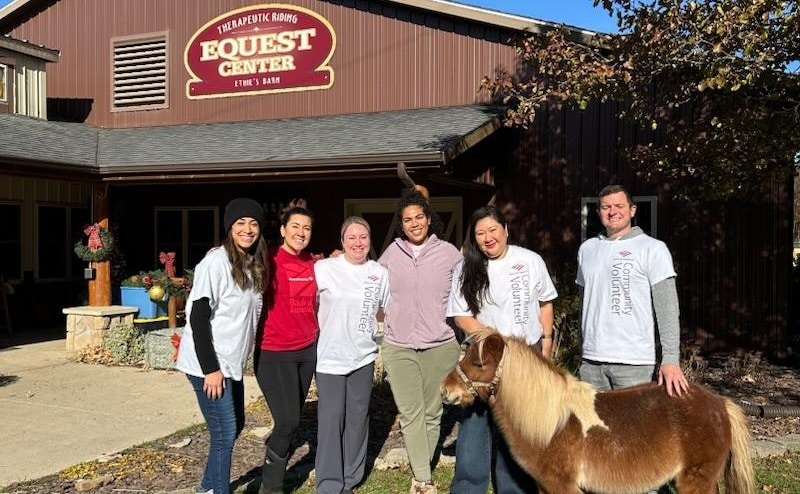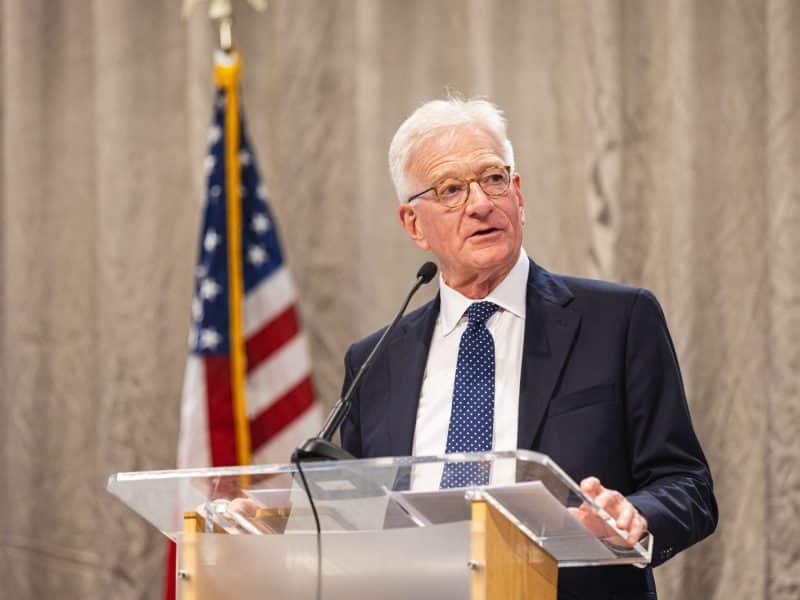RapidBlog: A Tutor’s Impact, by Lindsay McHolme
Guest Blogger Lindsay McHolme talks about a tutor/mentor pair at the Literacy Center, and the difference such tutors can make in the lives of others within their community.

Two years ago, Halimah Nuriddin found herself working at a factory surrounded by immigrant co-workers, most of whom spoke Spanish. Nuriddin, who studied Spanish, jumped at the opportunity to chat with her co-workers, but quickly learned that most of the women didn’t know English and weren’t able to communicate their basic needs — asking for a break, sick leave, a pay raise — to their boss.
Her co-workers’ lives were too busy to attend formal English classes, so Nuriddin conducted English conversation lessons while working on the line. As more women became interested in learning, Nuriddin organized English conversation gatherings in their homes.
“If you don’t know English, on a large scale, you’re going to be disadvantaged in a lot of ways. The ladies I worked with two years ago, they didn’t even know how to defend themselves (in English) if they had an emergency. I feel that knowing English is a good step towards protecting yourself from some aspects of that (being cheated or used as a scapegoat) because you’re able to communicate, which is integral to everyday life,” said Nuriddin.
Nuriddin soon obtained a job as an editor at Shoppers’ View, and had to leave the English conversation classes behind.
“I found that working with…all the women…was really fulfilling. I knew that it was beneficial. When it came time to leave that job, it was really hard,” she says.
But that wasn’t the end of Nuriddin’s tutoring days. She applied to be a volunteer tutor for the Literacy Center of West Michigan. She now meets with her student, Rosa Quintino, every week at the Grand Rapids Main Library.
Like many of Nuriddin’s former co-workers, Quintino moved to the United States from Mexico about 11 years ago. She’s been so busy with work and her daily routine that she hasn’t had the chance to learn English the way she had hoped.
When Nuriddin first started tutoring Quintino in February 2010, Quintino was barely literate in Spanish, and, even though she could hold a basic conversation in English, was hesitant to use English regularly. Since working with Nuriddin, Quintino says she has improved her English language communicative abilities, especially at work.
“Now I understand a little more when (co-workers) talk to me on the radio wanting the names of the material that I run at work,” Quintino says.
Nuriddin agrees that Quintino has made progress: “She is able to discuss things (in English) like cell phone bills, contracts, utilities, going to church or things at work, relationships, and all kinds of things. I think she has (become) more confident.”
So, what is Nuriddin’s magical tutoring secret? She avoids basing her sessions around monotonous workbook lessons when possible, and implements innovative and relevant tutoring methods that involve every day conversation, reading, and writing. Most importantly, she designs each lesson around Quintino’s needs and goals.
The pair starts each lesson with small talk, which according to Nuriddin, is a “crucial element to the whole acculturation process.” Nuriddin contextualizes her lessons by using practical and simple manipulatives — maps, magazine cut-outs, and pictures of people pasted on index cards. These cards have been lovingly dubbed “The People.” They use “The People” to review old concepts and to introduce new life-skills material.
“Whenever I get to the library, it is surprising how excited I’ll get. It takes me aback sometimes…just the excitement of getting to work together and putting ideas into motion and seeing results,” Nuriddin says.
Nuriddin is finishing up her last two semesters towards her Associates in Arts at Grand Rapids Community College. She then plans to attend Grand Valley State University for degrees in International Relations and Spanish. Her long-term goal is to teach English overseas.
At present, there are over 100 adult students waiting for a Literacy Center tutor. If you would like to make a positive impact on our community like Halimah Nuriddin has, call the Literacy Center of West Michigan today at 616-459-5151. Volunteer tutors are provided with free training, materials, convenient tutoring locations and times, and on-going support.
Lindsay McHolme taught high school English in Tegucigalpa, Honduras from 2004-2007, and presently works at the Literacy Center of West Michigan. She is a graduate student at Grand Valley State University in the MA.Ed TESOL and Literacy Studies program.









